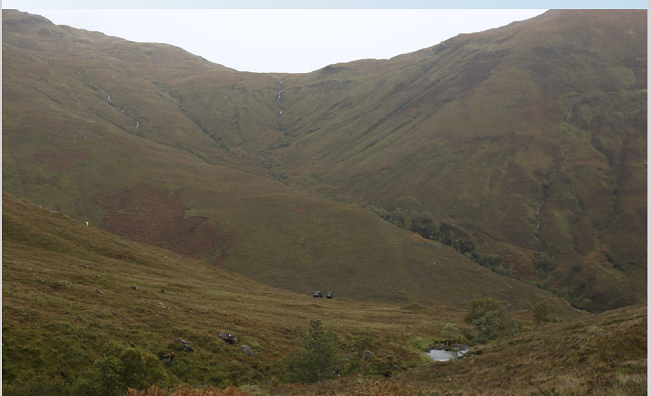
Keir Starmer has been widely reported over the last couple of days in the UK media as being likely to say in a speech today that “things will get worse before they get better” (see here). Whatever the truth of this statement as applied to the economy as a whole, it is certainly not the case with the Shared Rural Network programme.
The reasons why were explained to the UK Government 4 weeks ago by an unprecedented coalition of organisations:

The coalition of organisations whcih signed the letter included community councils representing some of the local communities in the Highlands who don’t want these masts:
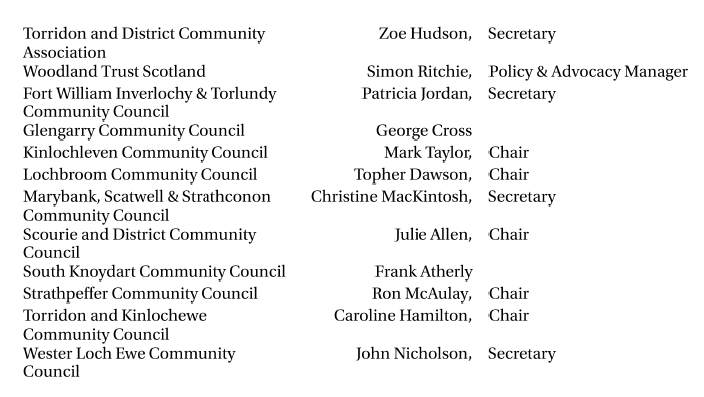 This list, while significant, appears to reflect a greater degree of organisation and co-ordination of concerns about these masts by community councils in the north west. Neither Laggan nor Aviemore and Glenmore Community Council, for example, are included although both have raised similar concerns to those expressed in the letter in objections to phone masts in the Cairngorms National Park (Laggan to a mast in a partial not spot).
This list, while significant, appears to reflect a greater degree of organisation and co-ordination of concerns about these masts by community councils in the north west. Neither Laggan nor Aviemore and Glenmore Community Council, for example, are included although both have raised similar concerns to those expressed in the letter in objections to phone masts in the Cairngorms National Park (Laggan to a mast in a partial not spot).
The signatories also included Scottish Land and Estates, who mainly represent large landowners in Scotland, and a significant number of individual landowners:
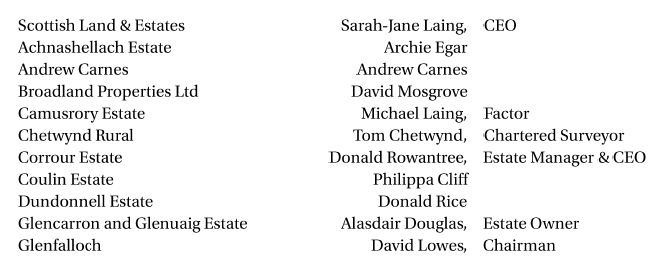
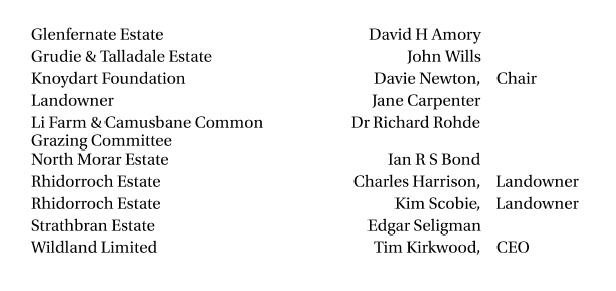
When I first started to write about the Shared Rural Network programme on Parkswatch I questioned why so few landowners were apparently objecting to masts on their land and suggested that they might be in favour of these masts for estate management purposes. That may still be the case for a few – the landowner at Glen Shiel has not objected to the proposed mast in Glen Undalain (see below) – but the number of landowners who are now aware of the Shared Rural Network programme and are opposed to masts in wild areas is impressive.
While most of these landowners are rich enough to be able to afford now the satellite technology which will rapidly make these masts redundant, they still appear to care far more about Scotland’s landscape than the civil servants and mobile operators who designed the Shared Rural Network programme.
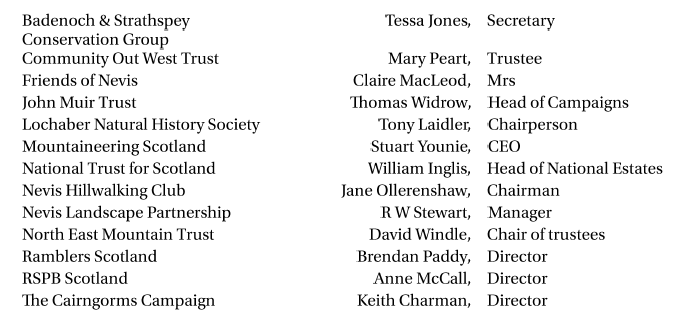
The list of conservation and recreational organisations signing the letter includes the organisations that have led opposition to these masts nationally (North East Mountain Trust, NTS etc) but also includes local organisations based in the Highlands, mainly around Fort William. Again that is significant: it suggest that the list of local conservation and recreational organisations opposing these masts may be the tip of an iceberg.
The letter is powerful and to the point in its criticism of the programme to eliminate Total Not Spots: it explains the masts will benefit few people, will be very costly to maintain and cause significant and unnecessary damage to the natural environment. So when are Keir Starmer, his ministers and Labour Party MPs going to wake up to the disastrous Shared Network programme, assume responsibility and fix a problem that is clearly in their power to address?
Where I disagree with the letter is it also implies the other part of the Shared Rural programme, funded by the mobile operators, is unreservedly a good thing:
 The truth, as Parkswatch as shown, is that the four main mobile operators are failing to co-operate with the result that the programme to eliminate partial not spots has made slow progress and is causing nnecessary damage to the landscape and the natural environment. Instead of sharing masts in places like Creag Dhubh and Glenmore, individual mobile operators have been submitting applications for new masts which do not show existing coverage from other operators (see here). That too lies with the power of the UK Government to fix now.
The truth, as Parkswatch as shown, is that the four main mobile operators are failing to co-operate with the result that the programme to eliminate partial not spots has made slow progress and is causing nnecessary damage to the landscape and the natural environment. Instead of sharing masts in places like Creag Dhubh and Glenmore, individual mobile operators have been submitting applications for new masts which do not show existing coverage from other operators (see here). That too lies with the power of the UK Government to fix now.
To return to the main thrust of the letter, a very good illustration of the unacceptable impact of the programme to eliminate Total Not Spots come from a current planning application for a new mast just off Glen Shiel and the road to Skye.
The proposed telecommunications mast in Glen Undalain
The site of this proposed mast is about 3 miles south of Shiel Bridge and north of the Saddle. Glen Undalain forms part of a National Scenic Area – so the mast does not count as permitted development and requires full planning permission – and the “Knoydart” Wild Land Area. In the past the glen was probably rarely visited but the lower part now forms part of the Cape Wrath Trail.

Due to the deep cut and narrow nature of Glen Undalain, the coverage provided by the mast will be limited to a core area lof ess than 2km in radius, despite the proposed height of the mast being 30m rather than the standard 25m. This mast therefore has even less justification than others being proposed to eliminate 4G Total Not Spots. Moreover, locally it will have even greater impact on what is a wild and unspoilt landscape (see photo above) due to its height and the proposed solar panels Moreover, as Robert Craig shows in his objection, much of this small area of wild land receives 2G signal from an existing vodafone mast which allows coverage for emergency purposes.
It would be hard to find a better case to show why the part of the Shared Rural Network programme designed to eliminate Total Not Spots is a complete waste of UK Government money.
A number of excellent objections to the Glen Undalain planning application (see here), explaining in greater detail what is wrong with the proposed mast, have been submitted by a core of activitists who have been leading opposition to the Shared Rural Network programme. Robert Craig, George Allan from the NEMT, Jane Meek and David Jarman have all contributed to parkswatch and their objections deserve to be read by the Rt Honourable Chris Bryant and Peter Kyle. While the deadline for submitting comments on this application is now past, its not too late for those living in the Highlands to make representations to local councillors.
Others concerned about the impact of the Shared Rural Network programme could use this case and the detailed arguments in the objections to persuade their local MP that if the UK Government scrapped the Total Not Spot programme, Keir Starmer could make things better now. The evidence suggests this would be a popular move in the Highlands, particularly if the money was re-invested in things local communities actually need.

The money would be better spent helping the vulnerable pay their winter energy bills, or used to safeguard budgets for nature restoration work. What a profligate waste of resources.
i have noticed while reading many Landscape and Visual Assessment reports for masts that those writing the reports tend to say either “no-one goes there, so the impact doesn’t matter” or “lot’s of people go there, so the impact doesn’t matter”.
While of course I live in an anti-mast bubble, I have never seen anyone speaking out saying “this is good for me”. There’s plenty of grant-seekers saying “this will be good for rural communities, but they never do identify the communities.
They don’t know anything about the communities, by and large, nor do they care. Why would they when they’re sitting at a desk in some urban office, sticking pins into a map or equivalent? You’ll perhaps have seen that the DPEA has upheld the appeal of the developer who applied to put a mast by the Allt Dunan ROR hydro weir near the Corrour Munros? It’s a TPNO. I fear that other developers may follow suit and appeal if their applications are turned down. We really need politicians to wise up on this issue but their heads are buried so deep in the sand it would take a seismic event to dislodge them.